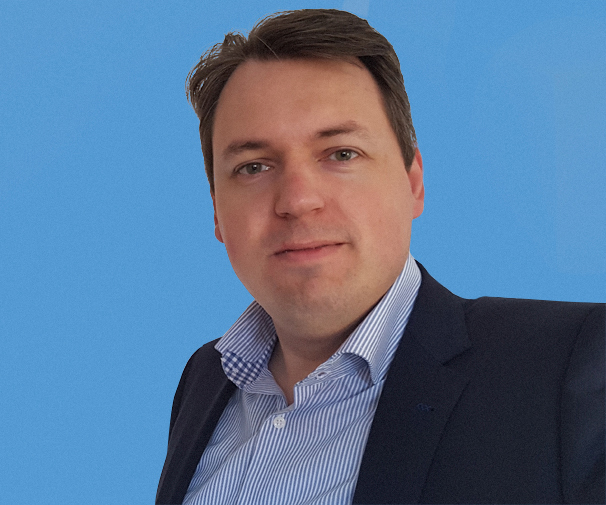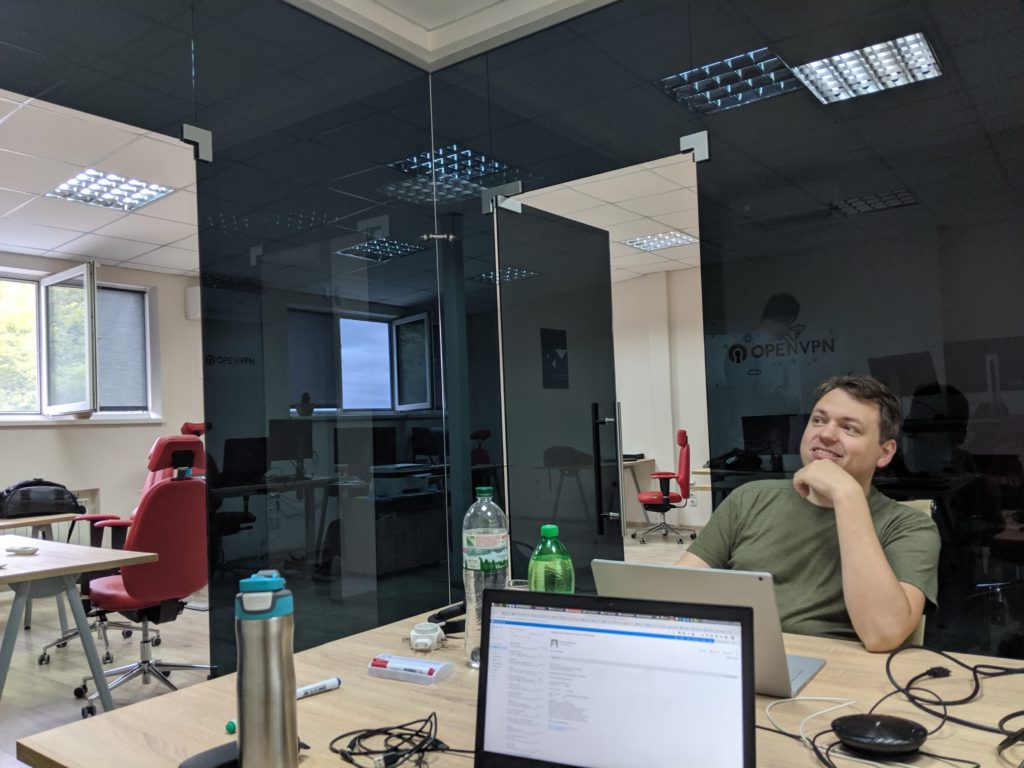Rapid Scaling: OpenVPN’s Johan Draaisma on Navigating Through Growth

When Johan Draaisma, the Access Server manager, first started working at OpenVPN, the company consisted of just a small team. "Until I experienced the company's rapid growth and saw it transform from one small team to a large company with several teams, I didn't fully realize how effective our small team was." Johan explained that it is amazing to think back on how much that original team got done in a day — but also recognizes that growing the company has been a very good thing as well.
With a small team, a single task may be faster than with a large group. But with a large team, multiple tasks can be handled at the same time, and that was what OpenVPN ultimately needed. "We've grown a lot in the past few years, and we are fortunate to have such great new people on board that are making up effective teams now." However, Johan explained that it took some time and effort to get the teams operating at their current high level.
Johan said that during the rapid growth phase, the most significant area to overcome has been knowledge transfer. "You have to communicate and keep track of things so you can see people going off in the wrong direction. New employees especially don't know about certain things that we, as the original team members, would all be aware of. We have a lot of product knowledge. But with a lot of new people joining and new teams being set up, it was hard to ensure everyone had the right knowledge to do their job effectively."
When it comes to knowledge transfer, Johan identified two primary hurdles: cultural and personal. "When the company was small, I always saw myself as just one of the guys. But then all these new people saw me as unapproachable and too busy to deal with simple issues." Johan continued to explain that when employees are in a culture where they are typically expected to figure things out for themselves, it can cause a decrease in efficiency. "But when I visited the foreign offices personally, we broke the ice pretty quickly, and people relaxed and started asking questions." Things are running well now that people are not afraid to approach each other and get their questions answered directly.
According to Johan, another challenge is finding the right people who can take on a lot of responsibility and effectively organize the people around them. "We got lucky with a few people that have been good at this. I've personally had to step up and be less of the guy doing the work, and instead be a contact point and manager to make sure other people can do their jobs effectively."

To navigate all the challenges that can arise when an organization scales, Johan believes that establishing a manager position, holding regular status meetings, and scheduling meetings between multiple teams is crucial. "I think if I were to be in a startup company now and be part of a huge growth phase like that again, I would very quickly organize a team and set these things up and accept the fact that I would have to delegate tasks to others that I was previously doing." Johan places a high priority on regular training, question and answer sessions, and taking time for new employees. Johan makes it abundantly clear that if anybody is stuck on something or has doubts, they need to talk to the people that already have the knowledge.
For a rapidly growing team, it is especially important to figure out the strengths and weaknesses of each team member early on. Ask them what they feel they are good at, or what they want to develop in their skillset. "Often, team members are hired for a particular role, and you find out pretty quickly that they would be much better suited at another task, and maybe even better on another team. It's best not to get in the way of that, but try to work that out with them."
Johan explained that he recently had an employee from technical support move to quality assurance. The employee wanted to transition, and the team needed more QA anyway. “We'll find someone else to fill his position in technical support. It's better to get people in the right place. Rigorous planning for team members doesn’t always work out, so I am always prepared to move people around a bit and let them settle into what they do best.” But, Johan cautioned, it is important to strike a balance. “You can't let positions run wild, but you also shouldn't put them in a straightjacket.”
Most of Johan's time is spent coordinating between teams and team members. In a fast-growing company, it's sometimes a challenge to make sure things get done at the right time by the right people and to minimize delays where possible. "Fortunately, since I've been with the company for a long time, I know just about everyone which helps me navigate the company dynamics and smooth communications. I enjoy seeing my team members happy when I help push something they've created to greater heights within the company or the open source community."


